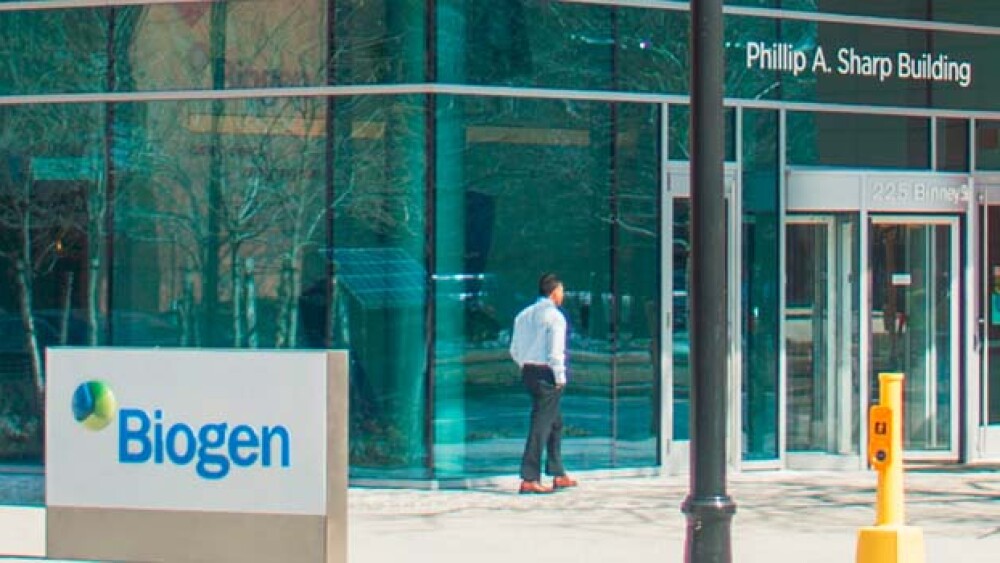Biogen reported strong sales for the second quarter, with total revenues of $3.4 billion, up 9 percent compared to the same period in 2017.
Biogen reported strong sales for the second quarter, with total revenues of $3.4 billion, up 9 percent compared to the same period in 2017. Multiple sclerosis (MS) revenues were $2.3 billion, with about $113 million being royalties for Ocrevus. Its relatively new drug for spinal muscular atrophy (SMA), Spinraza, brought in $423 million in global revenues for the quarter.
Both GAAP net income and diluted earnings per share (EPS) were up compared to the second quarter in 2017, with GAAP net income being $867 million compared to $863 million in 2017, and EPS being $4.18 this year compared to $4.07 in the second quarter of 2017.
Total revenues for the second quarter were $3.357 million compared to $3.078 billion in the second quarter of 2017.
“We continue to execute on our strategy to be the leader in neuroscience, as exemplified by our progress in our growth areas of Alzheimer’s disease, neuromuscular diseases and acute neurology,” said Michel Vounatsos, Biogen’s chief executive officer, in a statement. “Overall, revenues grew nine percent to a record $3.4 billion in the second quarter. The number of patients treated with our MS therapies globally remained relatively stable compared to last year. We saw an increase of over 20 percent in the number of adult Spinraza patients in the U.S. versus last quarter, as we work to increase access and adoption in older patients. Outside the U.S., the pace of reimbursement for Spinraza across multiple geographies supported meaningful revenue growth, and we look forward to introducing the therapy to new markets worldwide.”
The company also indicated today that it and Eisai will move ahead with late-stage clinical trials of BAN2401 for Alzheimer’s disease. They are working with regulators to design the studies and try to get Breakthrough Therapy designation or its global equivalents.
On July 6, the two companies announced positive topline results from their Phase II trial of BAN2401 in Alzheimer’s. It failed its primary goal at the 12-month mark, not showing better results than placebo. But the announcement looked at 18 months of data, and positive effects were observed in one of five doses—the highest one. It appeared to have a significant positive response on both cognition and accumulation of amyloid plaques in the brain.
Lynn Kramer, Eisai’s chief medical officer of its neurology unit told Reuters today, “Our plan would be to start more trials. Whether it be Phase III in the same patient population, or other populations. We are thinking about a number of things. We are certainly considering ‘prime’ status in Europe, ‘breakthrough’ in the United States and ‘sakigake’ in Japan.”
In the second quarter announcement, Vounatsos said, “In addition, we have made advancements in Alzheimer’s disease, with the completed enrollment in the aducanumab Phase III studies and encouraging topline data for BAN2401. We also continued to expand our neuroscience pipeline with new assets targeting stroke and muscle enhancement.”
Biogen also updated its 2018 financial guidance. Revenue is projected to be $13 to $13.2 billion, an increase from previous guidance of $12.7 to $13 billion. Its GAAP R&D expense is projected to be 19 percent to 20 percent of total revenue, compared to earlier guidance of 16 to 17 percent. Non-GAAP R&D expenses are 18 to 19 percent of total revenue compared to 16 to 17 percent, and GAAP and non-GAAP SG&A expenses are projected to about 15 to 16 percent of total revenue, which is unchanged from its earlier guidance.
Biogen also announced today that it had acquired Phase Ia and preclinical assets from AliveGen. They are BIIB110 and ALG0802, respectively, and target the myostatin pathway. They expect to develop them in multiple neuromuscular indications, including SMA and amyotrophic lateral sclerosis. This included an upfront payment of $27.5 million and up to $535 million in potential milestones.





